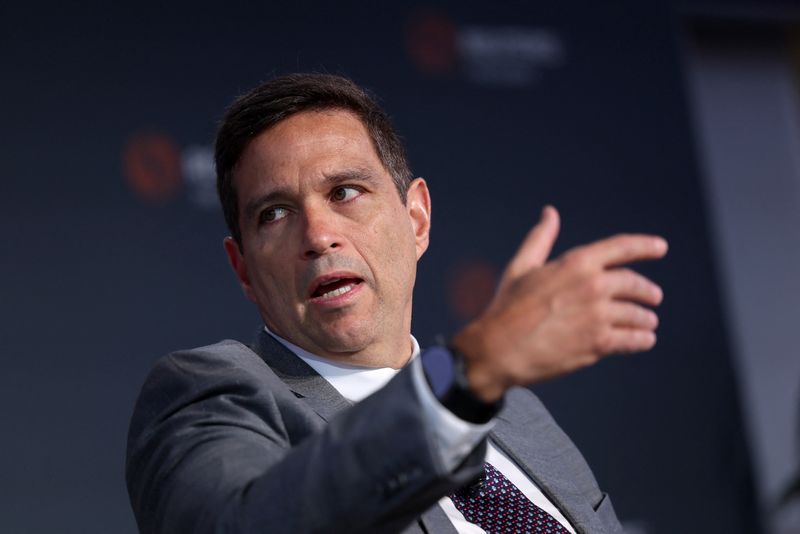Brazil’s central bank chief, Roberto Campos Neto, recently addressed concerns regarding inflation expectations in the country. He emphasized a significant deanchoring of these expectations, which refers to a situation where the public’s forecasts about future inflation diverge from the central bank’s goals. Campos Neto stressed the importance of restoring inflation to its target levels, indicating a strong commitment from policymakers to achieve this goal. His remarks come at a time when inflation continues to be a vital economic concern for Brazil, and maintaining credibility in monetary policy is crucial.
During an event organized by the 20-20 Investment Association, Campos Neto discussed the current state of Brazil’s economy, particularly highlighting the labor market data, which suggests a tight job environment. This condition is essential as it often influences wage growth and, consequently, services inflation, which can exert upward pressure on overall inflation rates. The central bank chief pointed out the need for vigilance in monitoring services inflation as a key component of the broader inflation landscape.
Moreover, Campos Neto explained that the policymakers have opted not to provide specific monetary guidance at this time. This decision is intended to allow them to assess the rapidly changing economic environment. By refraining from certain statements regarding future interest rate movements or other monetary policy actions, the central bank seeks to maintain flexibility and adapt to new information as it becomes available.
The notion of deanchoring inflation expectations has serious implications for Brazil’s economic stability and growth prospects. When consumers and businesses lose faith in the central bank’s ability to control inflation, they may begin to act in ways that exacerbate inflationary pressures—such as demanding higher wages or increasing prices preemptively. Campos Neto’s recognition of this issue signals an awareness of the delicate balance the central bank must strike between fostering economic growth and controlling inflation.
Responding to economic pressures requires a comprehensive approach that addresses both supply and demand factors influencing inflation. As the labor market tightens, wages may rise, potentially leading to increased consumption, which can further fuel inflation unless counterbalanced by effective monetary policy. The central bank’s vigilance in monitoring this dynamic relationship between labor conditions and inflation expectations is therefore essential to setting the right policy course.
In conclusion, Campos Neto’s comments underline the urgency of addressing inflation challenges in Brazil, especially given the recent shifts in inflation expectations. The commitment to bring inflation back in line with targets, alongside careful monitoring of labor market dynamics, reflects a proactive stance by Brazilian policymakers. As they navigate these issues, the central bank’s strategy of providing limited guidance may serve to keep options open in the face of an evolving economic landscape, ultimately aiming for a stable growth trajectory without spiraling inflation.

